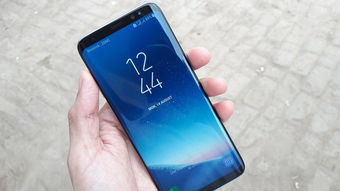Exploring Mobile Technology: Understanding the Concept and Impact
漫游科技英文
Mobile technology, often referred to as "漫游科技" in Chinese, encompasses a wide range of technologies that facilitate communication, information access, and productivity on portable devices such as smartphones and tablets. Let's delve into this concept, its components, and its impact on various aspects of our lives.
Understanding Mobile Technology
Mobile technology refers to any technology that enables communication or information access on the go. It includes hardware devices, such as smartphones and tablets, as well as software applications and services that run on these devices. Key components of mobile technology include:
1.
Hardware:
Smartphones and tablets are the primary hardware components of mobile technology. These devices incorporate various features such as touchscreens, cameras, sensors, and connectivity options like WiFi, Bluetooth, and cellular networks.2.
Operating Systems:
Mobile devices run on operating systems specifically designed for them, such as Android, iOS, and Windows Mobile. These operating systems provide the framework for running applications and managing device resources.
3.
Applications:
Mobile applications, or apps, are software programs designed to perform specific tasks on mobile devices. They range from productivity tools and social media apps to games and entertainment services.4.
Connectivity:
Mobile technology relies on various connectivity options to access the internet and communicate with other devices. This includes cellular networks (3G, 4G, and now 5G), WiFi, Bluetooth, and NFC (Near Field Communication).5.
Cloud Services:
Cloud computing plays a crucial role in mobile technology by providing storage, processing power, and services over the internet. Cloud services enable seamless synchronization of data across multiple devices and platforms.Impact of Mobile Technology
The widespread adoption of mobile technology has had a profound impact on society, business, and everyday life:
1.
Communication:
Mobile technology has revolutionized communication by enabling instant messaging, voice and video calls, and social networking on the go. People can stay connected with friends, family, and colleagues regardless of their location.2.
Information Access:
With mobile devices, people have instant access to vast amounts of information via the internet. This has transformed how we consume news, research topics, and access educational resources.3.
Commerce:
Mobile technology has reshaped the way we shop and conduct financial transactions. Mobile banking apps, ecommerce platforms, and digital wallets allow users to make payments, transfer funds, and shop online conveniently and securely.4.
Healthcare:
Mobile technology has the potential to improve healthcare delivery through telemedicine, remote patient monitoring, and health tracking apps. Patients can consult with healthcare providers, monitor their health metrics, and access medical information from their smartphones.5.
Education:
Mobile devices and educational apps are transforming the way students learn, providing access to interactive learning materials, online courses, and educational games. Mobile technology has the potential to make education more accessible and personalized.6.
Entertainment:
Mobile devices serve as portable entertainment hubs, offering access to streaming services, gaming apps, ebooks, and digital media. Users can enjoy entertainment content anytime, anywhere, enhancing leisure and relaxation.Future Trends
Looking ahead, several trends are shaping the future of mobile technology:
1.
5G Connectivity:
The rollout of 5G networks promises faster speeds, lower latency, and greater capacity, enabling new applications such as augmented reality (AR), virtual reality (VR), and autonomous vehicles.2.
Internet of Things (IoT):
Mobile technology is driving the proliferation of IoT devices, such as smart home gadgets, wearable devices, and industrial sensors. These interconnected devices communicate and share data over mobile networks, enabling automation and smart functionalities.3.
Artificial Intelligence (AI):
AIpowered features are becoming increasingly prevalent in mobile devices, enhancing user experiences with personalized recommendations, voice assistants, and predictive analytics.4.
Augmented Reality (AR) and Virtual Reality (VR):
AR and VR technologies are gaining momentum in mobile applications, offering immersive experiences for gaming, education, training, and marketing.5.
Mobile Health (mHealth):
The integration of mobile technology with healthcare services is expected to grow, empowering patients with remote monitoring tools, telemedicine platforms, and personalized health interventions.In conclusion, mobile technology has become an integral part of modern life, shaping how we communicate, work, learn, and entertain ourselves. As technology continues to evolve, embracing mobile innovation will be essential for individuals, businesses, and societies to thrive in the digital age.











